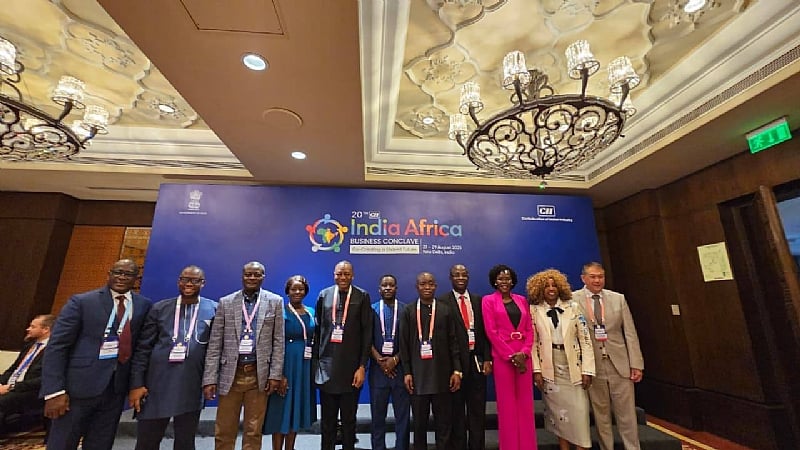The 20th India-Africa Business Conclave, hosted in New Delhi, served as a platform for Mr. Sampson Ahi, Ghana’s Deputy Minister for Trade, Agribusiness and Industry, to advocate for a strengthened partnership between India and Africa. He underscored the necessity of transitioning from the traditional donor-recipient dynamic to a more equitable and mutually beneficial relationship founded on co-investment, co-innovation, and co-creation. This approach, he argued, would unlock the immense potential residing within both regions and drive prosperity, sustainability, and inclusive growth. Mr. Ahi emphasized the shared demographics and developmental challenges faced by both India and Africa, highlighting their youthful populations, rapidly expanding economies, and common struggles with urbanization, job creation, infrastructure development, and climate change. These shared realities, he asserted, provide a strong foundation for collaborative endeavors, particularly in crucial sectors like mobility and energy.
Mr. Ahi proposed a strategic model for collaboration in the electric vehicle (EV) sector, leveraging India’s technological prowess in software, battery management, and small EV platforms, coupled with Africa’s abundant mineral reserves essential for battery production. This partnership, he envisioned, would enable the development of robust local EV ecosystems across Africa, contributing to sustainable transportation and economic growth. He emphasized the potential for mutual benefit, with India gaining access to critical raw materials and Africa benefiting from technology transfer and the development of a local manufacturing base, leading to job creation and reduced reliance on imported vehicles.
Furthering his vision for sustainable development, Mr. Ahi highlighted the potential of biofuels, particularly in replicating India’s successful ethanol production model using agricultural waste. This strategy, he explained, would offer a multifaceted approach to addressing key challenges. By utilizing agricultural waste, the initiative would provide additional income streams for African farmers, simultaneously reducing reliance on environmentally damaging fossil fuels and significantly lowering carbon emissions. This approach, therefore, offers a potent combination of economic, agricultural, and environmental benefits, aligning with the broader goals of sustainable and inclusive growth.
Mr. Ahi’s call for collaboration extended beyond the EV and biofuel sectors. He stressed the importance of translating discussions into concrete action, urging participants at the conclave to move beyond theoretical frameworks and forge tangible partnerships that would catalyze development in both regions. He encouraged the formation of strategic alliances that would leverage the respective strengths of India and Africa, facilitating the exchange of knowledge, technology, and investment. This practical approach, he emphasized, is crucial for translating the potential for collaboration into tangible outcomes that drive economic growth and improve the lives of people in both regions.
He underlined the importance of a paradigm shift in the India-Africa relationship, moving away from aid-based interactions towards a more equitable partnership based on mutual respect and shared benefits. He painted a picture of a future where India and Africa collaborate as equals, leveraging their respective strengths to tackle shared challenges and achieve common goals. This vision of co-development, he argued, would not only benefit both regions economically but also contribute to a more sustainable and equitable global order.
The core of Mr. Ahi’s message centered on the immense potential for mutually beneficial growth and development through a strengthened India-Africa partnership. His address served not merely as a call for collaboration, but as a blueprint for a future where both regions work together as equals, leveraging their respective strengths to drive prosperity, sustainability, and inclusive growth. He challenged the traditional paradigm of development assistance, advocating for a more dynamic and equitable partnership based on co-investment, co-innovation, and co-creation, ultimately leading to a more prosperous and sustainable future for both India and Africa.


